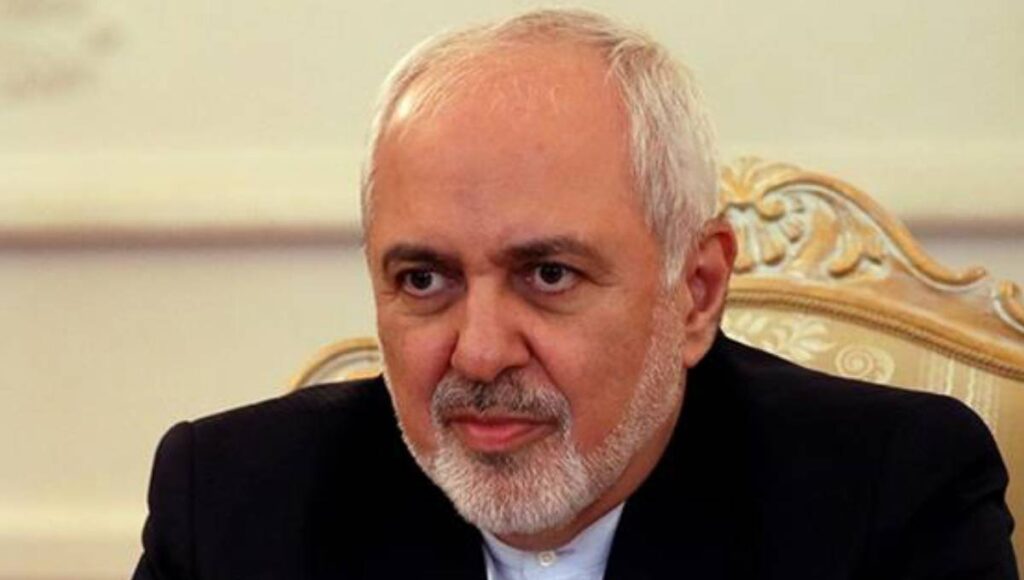Dhaka, Sep 4 (UNB) – Iranian Foreign Minister Javad Zarif has urged countries including Bangladesh not to bow to what he termed ‘economic terrorism’ by the United States government, and encouraged them to avail a number of alternative trading mechanisms that circumvent the US financial system to carry on trading with Iran – without falling foul of Washington’s sanctions regime.
“Measures that the United States is taking against Iran are punishing countries that want to observe the law, because the UN Security Council Resolution 2231 calls on member states to normalise business relations with Iran,” Zarif said, during a brief interaction with journalists at a city hotel on Wednesday.
“In the process the US is hurting those countries by preventing them from trading with an important partner, particularly in the petrochemicals market,” he added. Dr Zarif served the example of India, saying they end up paying upto “30 percent more” on the international market to meet their petrochemical needs, when they cannot buy from Iran.
US President Donald Trump rather infamously withdrew the US from the Joint Comprehensive Plan of Action (JCPOA), more commonly known as the ‘Iran nuclear deal’ that provided for Iran to curtail its nuclear programme and subject itself to the control of the International Atomic Energy Agency, while the other contracting parties gradually relaxed sanctions against Iran, in May 2018. Some sanctions were reimposed by Washington immediately. Later in November, the so-called secondary sanctions were also reinstated.
Secondary sanctions prohibit firms and individuals in other countries from conducting commercial transactions with US citizens and businesses, to inhibit their economic relationship with the country targeted with “primary” economic sanctions. With the ultimate goal to stop Iran’s nuclear program, US secondary sanctions gave financial institutions around the world a choice to either halt transactions with Iranian banks or lose access to the US financial system – including the use of the dollar, the world’s reserve currency.
The impact of the sanctions, that Zarif referred to throughout as “economic terrorism”, was being felt “directly” in a number of economies around the world as they target ordinary citizens, he said.
“Now the way to deal with them, is to reduce our dependence on the means that gives the US such a presence in determining the nature of our relations. Countries must be free to choose their trade and economic partners, without having other countries arm-twist them, or bully them,” said the foreign minister, who himself went on the list of sanctioned individuals earlier this year. His movements in New York City for example, whenever he is there for UN purposes, are now restricted within a few blocks of the UN offices in Turtle Bay.
His visit to Dhaka though, saw him spend a very busy day on Wednesday, including meetings with the prime minister, the foreign minister, and the speaker of parliament. Zarif was upbeat on the potential to increase bilateral trade, that currently languishes around just $160 million. The somewhat arcane-sounding barter system came up as a suggested mode of trade in goods and services between the two countries, as a convenient ploy to avoid the dollar.
To make it work, Iran could operate a bank account in Dhaka to trade using Bangladeshi Taka as a medium while Bangladesh could operate an account to trade using Iranian Rial in Tehran, an Iranian diplomat has said in the past. Iran has been engaged in barter trade with India and Russia.
Zarif seemed to suggest as long as the political will was there, the ways can be found in cooperation with Tehran. “We are the experts at sanctions-busting,” he claimed.
The Iranian foreign minister will be leaving Dhaka on Thursday, after attending the ‘3rd Indian Ocean Rim Association (IORA) Ministerial Conference on Blue Economy’ in the morning.




